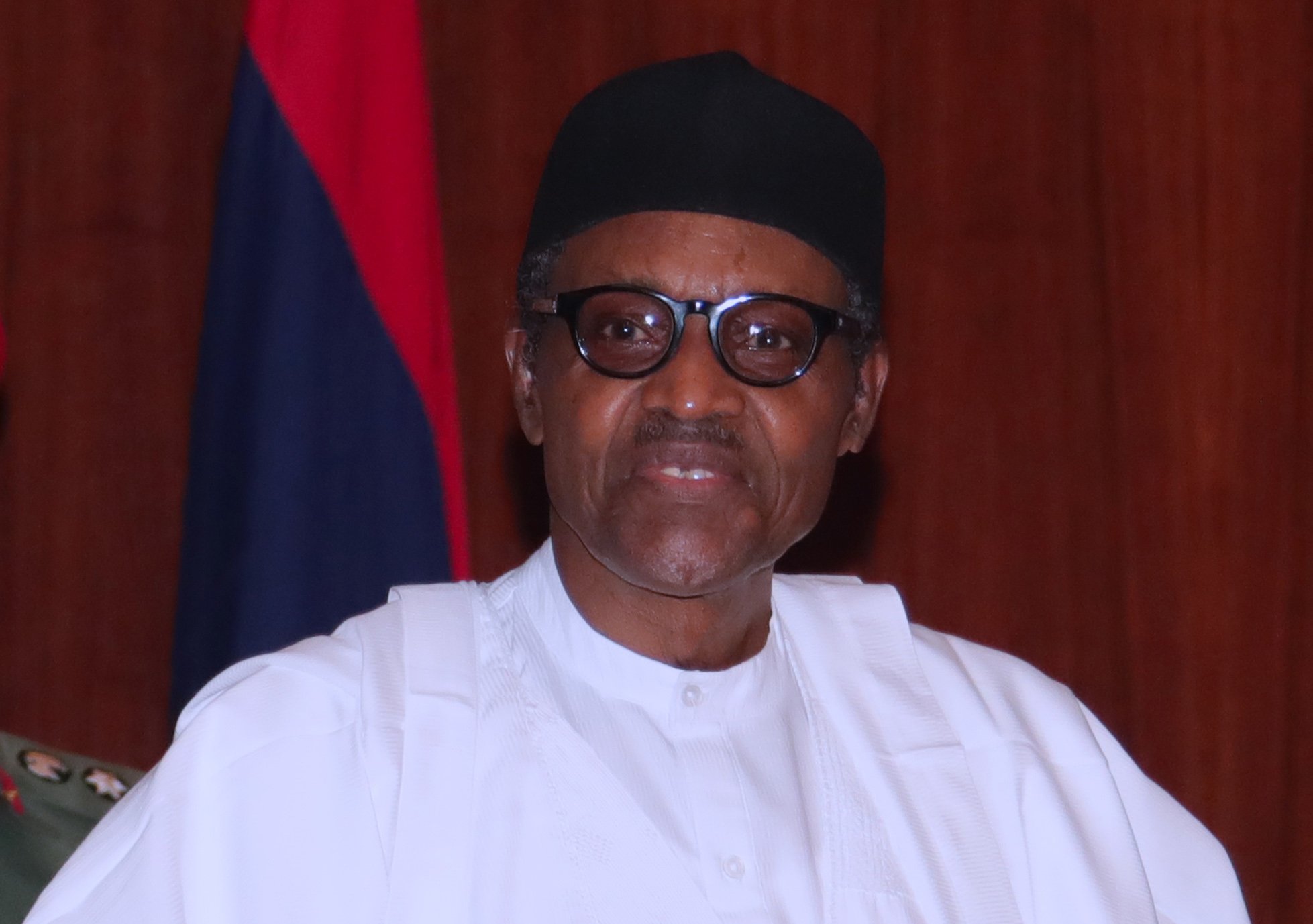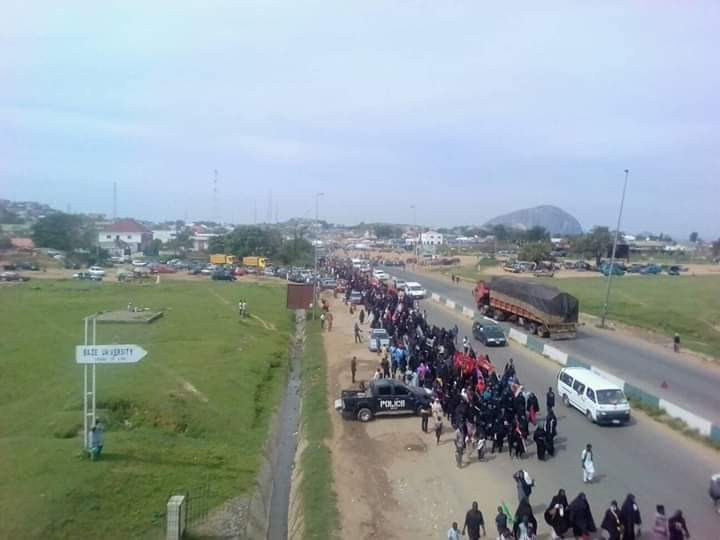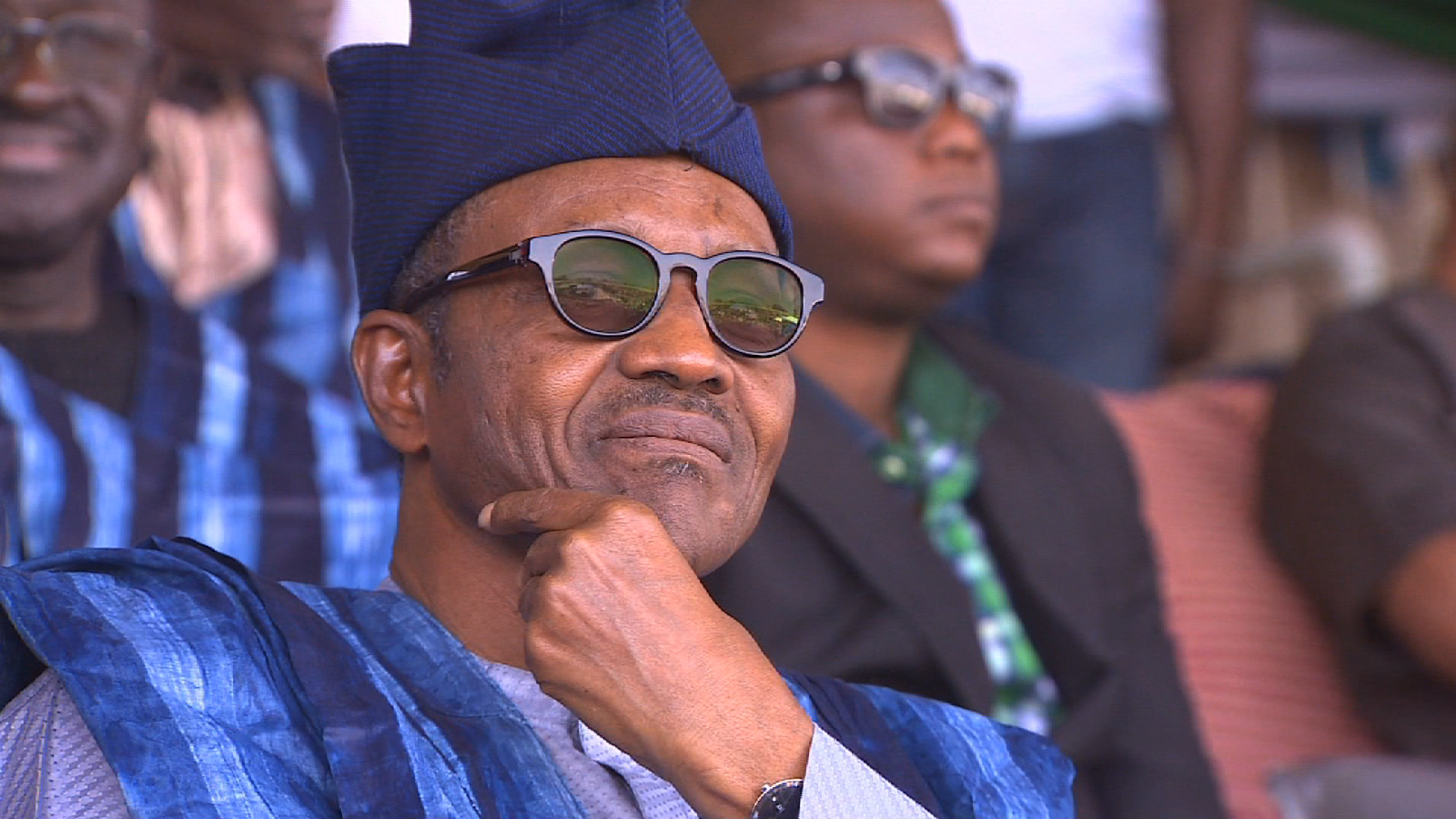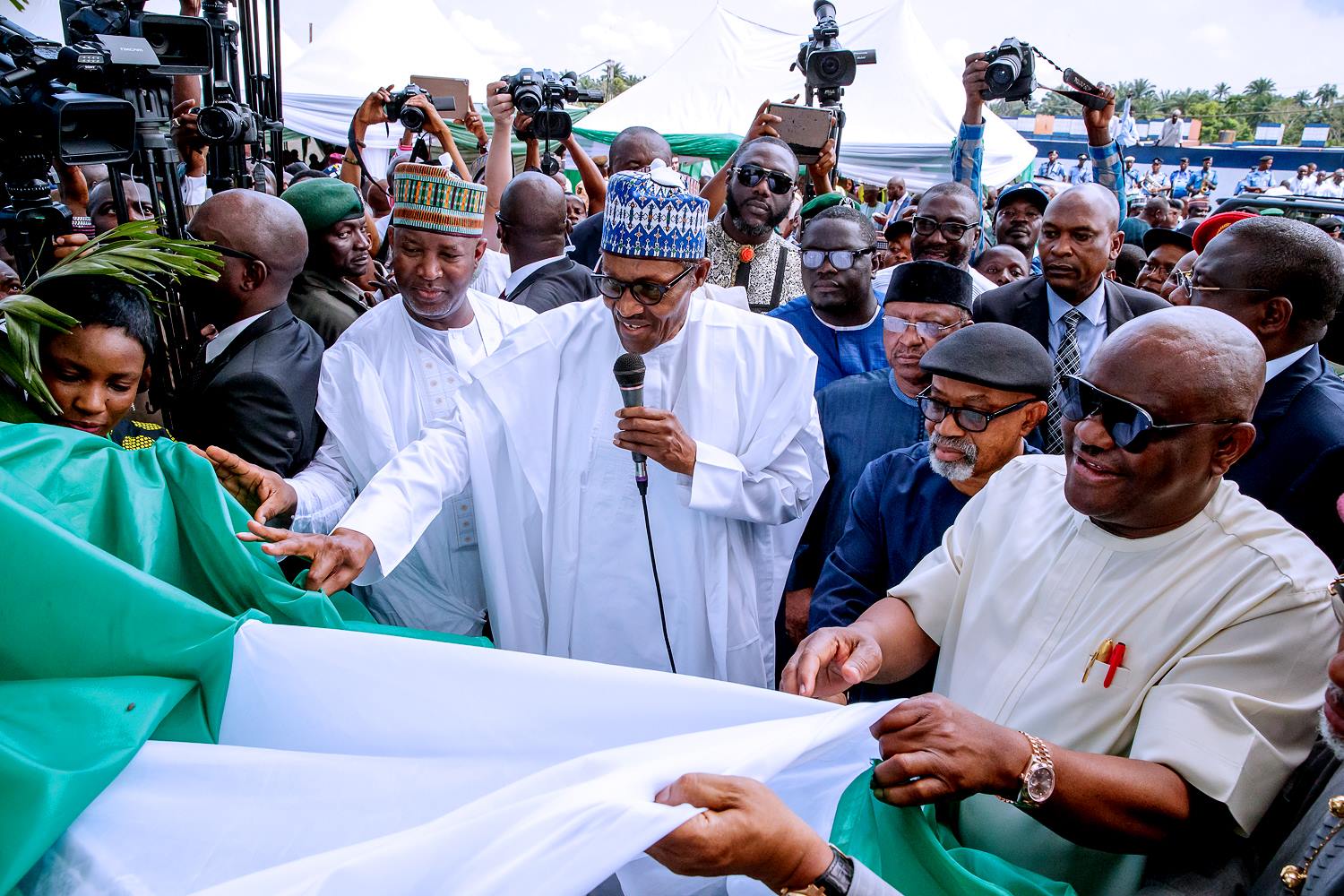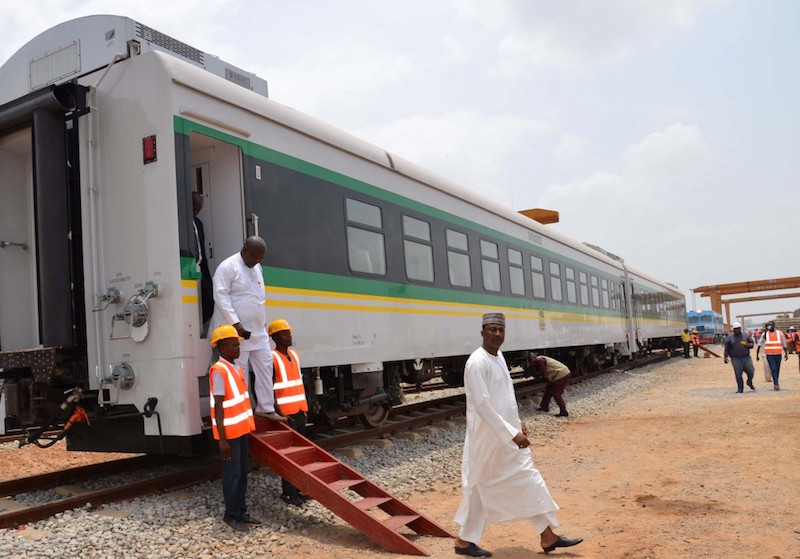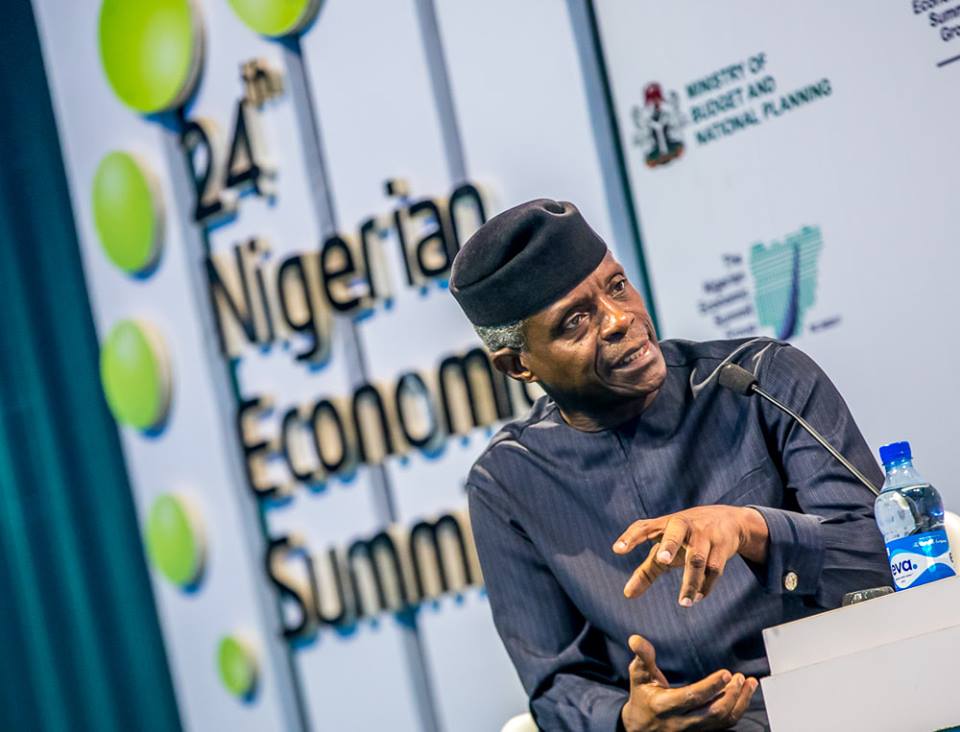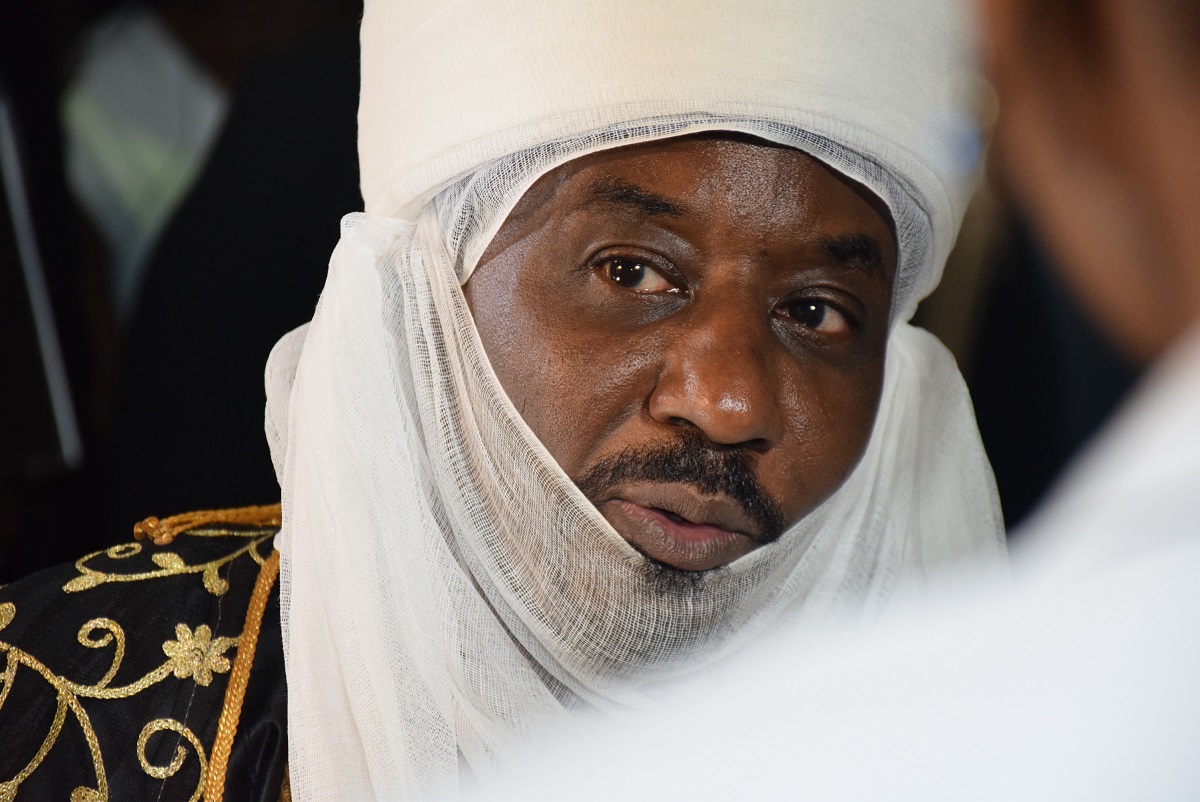PRESIDENT BUHARI PRESIDES OVER FEC MEETING 0B. President Muhammadu Buhari during the FEC Meeting held at the Council Chambers, State House Abuja. PHOTO; SUNDAY AGHAEZE. OCT 17 2018
In the last 24 hours, there has been controversy over President Muhammadu Buhari’s academic credentials. The president failed to submit his certificate to the Independent National Electoral Commission (INEC) as required, saying they are in possession of the military. This triggered some reactions, with some Nigerians questioning the veracity of the claim and wondering if he actually sat for the Senior School Certificate Exam (SSCE).
A similar scenario had also played out during the build up of the 2015 elections, with the president saying the military board has the credentials.
However, Alex Ajayi, former registrar, West African Examination Council (WAEC), had told PUNCH in an interview in 2016 that he issued Buhari’s certificate, alongside that of Sani Abacha and Ibrahim Babangida.
PUNCH had quoted Ajayj to have said: “…I joined the West African Examination Council as a pioneer staff. I was the first substantive Nigerian Assistant Registrar. I took over the control of the examination from the University of Cambridge. I took examiners to Cambridge for training across 10 years and trained them in Nigeria. I had the opportunity of issuing WAEC certificates to three former Heads of State: Buhari, Abacha and Babangida in the 60s.”
Advertisement
Below is the interview:
How was growing up like?
I was born on June 28, 1930. I was privileged to come from a literate family. My father worked with missionary priests who were Oxford-trained. Ado Ekiti, as a metropolis and occupied by agrarian people, did not develop as fast it should be in the beginning. Many towns and villages near and far from Ado produced graduates decades before our own time.
Advertisement
My father combined teaching with evangelism. He was in charge of three schools and three churches in Ikere in the 1920s. He and one other person established the first Olu Scout Troupe in Owo where I also became a member in 1941. My mother was also trained by the missionaries. My parents travelled to different parts of the country.
Which schools did you attend?
I attended many primary schools because my father was a headmaster and pastor. I started at St Luke’s Ikere and then St. Mary in Ode Ekiti. I later had a stint at Emmanuel Primary School, Ado Ekiti and in All Saints, Ogbonkowo, in Ondo State. I was at St James Igbara Odo, Ekiti, when my father was the headmaster and catechist there. I was at St Patrick, Owo, in 1941. My headmaster was the late Pa D.O Fagunwa who authored Ogboju Ode Ninu Igbo Irumaleand later became my class master at Igbobi College. I later went to All Saints, Owode in Abeokuta, Ogun State, which my father upgraded to Standard 5 and 6 till October 1943 when I came to Ado after my father was transferred to Aramoko Ekiti. I finished Standard 6 in Christ’s School, Ado Ekiti.
After leaving Christ’s School, which other schools did you attend?
Advertisement
I attended Igbobi College, Lagos from 1944 to 1949. At the time, the principal was the only member of the Headmaster’s Conference of England. I got sound education from the school. Because I belonged to a group of boys who were adventurous, we begged the school to allow us to sit for a high examination and school certificate when we were in final year.
We also sat for the London matriculation examination and many of us passed. I was able to teach my own mates while they were still in school because I left school months before them. I later gained admission into Fourah Bay College, Sierra Leone, an affiliate of University of Durham in England. The college produced Bishop Ajayi Crowther and all the great men of letters at the time. The first Nigerian Vice-Chancellor of University of Ibadan, Kenneth Dike, attended the university. I skipped the first year and spent only three years and that gave me a lot of advantages. Many of my seniors in grammar schools started working and could not continue with their education. That was how I became the first graduate in Ado Ekiti.
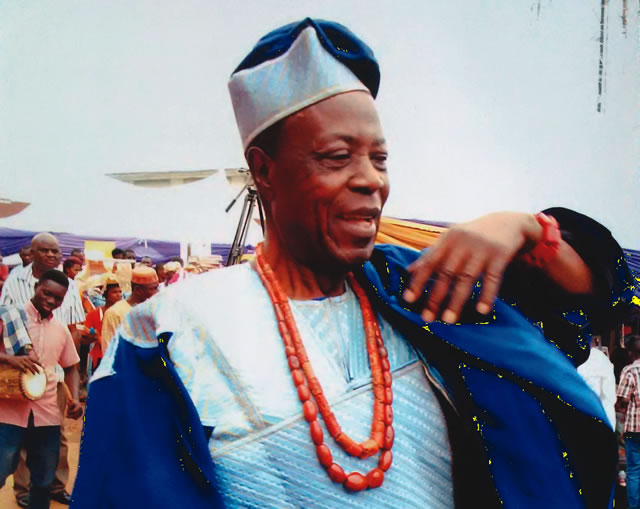
Can you give insights into your career in the civil service?
I was the principal of Fiditi Grammar School, Oyo State, at age 26 in 1956 and produced the first set of students in 1959. I ensured that the school was stabilised before I joined the West African Examinations Council. I also established a football team and the late Teslim (Thunder) Balogun came from Ibadan to train my boys. They went on to win all their matches in the western region and even defeated the University of Ibadan football team 12-0. With that level of achievements, I joined the West African Examination Council as a pioneer staff. I was the first substantive Nigerian Assistant Registrar. I took over the control of the examination from the University of Cambridge. I took examiners to Cambridge for training across 10 years and trained them in Nigeria. I had the opportunity of issuing WAEC certificates to three former Heads of State: Buhari, Abacha and Babangida in the 60s. When I was in WAEC, I was put on the council of the University of Ife (now Obafemi Awolowo University) in 1966 by the national government of Aguiyi Ironsi. I was put on three important committees. The vice-chancellor and others were interested that I became a full staff of the university which I was not really keen about. But I finally accepted out of pressure. When I was serving on the council of the University of Ife, I was among the three-member committee selected by Chief Obafemi Awolowo as the first chancellor. I was on the council that installed him in 1967. From the early days of my life, I never applied for jobs. I was just invited. I stayed at the University of Ife before I left for an examination correspondence college as a director and controller producing lectures for professional courses and involved with the Institute of Chartered Accountants of Nigeria, Institute of Insurers and Institute of Bankers. I had the joy of launching these new lecture courses in the universities in Lagos, Ife and the University of Nigeria, Nsukka. Thereafter, I went into private business with the late of Oni of Ife and Leventis. I established a factory at Ibadan where I was a director and subscribing shareholder.
Advertisement
In those days, we produced carpet used by the Senate, the Nigerian Stock Exchange and others. The carpet companies in Lagos then were just distributors; we were the real manufacturers.
Did you hold any public office?
Advertisement
I served as the local government chairman of Ado Ekiti between 1973 and 1983 first under the military and again invited under the civilians without receiving a kobo. That was when I gave out my house as Senate to the then Obafemi Awolowo University, Ado Ekiti. I’m used to giving to charity. I have instituted a scholarship for the best final year student in Christ’s School since 1967. These are just some flashes of my public and private life.
How did you meet your wife?
Advertisement
It was during independence in 1960. We had a ceremony at a Race Course which later became Tafawa Balewa Square. A lot of my friends came all the way from Freetown to watch the independence ceremony in Lagos. So, I decided to take them out. They gave me an address. But when I got there, maybe they were not so sure of the address, there was no sight of them. I met a young lady in front of the house. I asked for direction and she tried to explain to me whether it was another street or so. That was how we met. The friendship flourished. We married six years later. She is a brilliant, healthy and virtuous woman. She was the captain of netball in her school and later captained all Lagos netball teams that toured the whole of the West.
How do you unwind?
Advertisement
I enjoyed dancing a lot. In those days, we had jazz, jive, swig; these took us to different parties and restaurants in Lagos. In the university on Saturdays we had hops and dancing in the theatre. In my days in London we had Saturday hops. I am a life member of Lagos Island Club. I was a founding member of Ado Ekiti Inland Club. I was the launch chairman of scouting movement in the University of Ife in 1971. I am a life patron of Boys Brigade in Ado Ekiti. I compose hymns and write poems. I am a life patron of the choir in St Francis in Lagos; a patron of the choir in All Saints, Yaba and in Emmanuel Cathedral in Ado Ekiti. This gives me enough time to relax and enjoy hymns.
Tell us about your relationship with the late Chief Obafemi Awolowo.
My working relationship with Chief Obafemi Awolowo started with my father. In 1954, my father became a member of the House of Assembly in Ado Ekiti. Then, Awolowo was about founding the Action Group. At the time, not many people knew the difference between Awolowo and Nnamdi Azikiwe. They saw Awolowo as co-runner to Zik. Many people in the West then were Zikists. When members of the assembly were elected, it was on the day the assembly was going to open that Awolowo announced Action Group and started calling people to join him. I advised my father to stay with the National Council of Nigeria and the Cameroons because I belonged to a group referred to as Zikists Movement. Although I had just left secondary school then, Lagos gave us much political maturity because as students, we were allowed to attend public lecturers by the likes of Nwafor Orizu Zik, among others. Awolowo put my father on a very important committee. As principal of Fiditi Grammar School, Awolowo wanted to land his helicopter on the school’s field, but I insisted that the Premier must write a letter of permission, which he did. He wrote the letter and we allowed him to land the helicopter on the school’s field in June 1959. And he campaigned. I started visiting his house. Later on, Awolowo gave the first set of 200 scholarships. Before that, he gave out 40 to graduates and post- graduates students whom I was among. He wrote us letters personally at different locations to congratulate us. I replied his letter and thanked him. He was very pleased. I later became his campaign director under the United Party of Nigeria for the 1979 election.
You were Awolowo’s campaign director in Borno State for the 1979 elections. Do you share the belief that UPN was a party for westerners?
The intention of the founding fathers was to build a national party with branches all over the country. I had my office in Maimalari in Maiduguri, Borno State. Awolowo had his men all over the country. It was just the reception that failed. There were people that wanted to work with him in the North but they were in the minority. They were people that were anti-establishment who would rather be on their own. There was acceptance but not enough to change the status quo. But we still won a seat in Biu senatorial district. However, there was still rigging.
If the election was not rigged as you said, do you think Awolowo could have won the election?
No, he could not have won. There was suspicion in the North that the first coup plotters of 1966 wanted to make him the prime minister. There was so much distrust of him in the North because many leading northern leaders were killed in the first coup. So, they didn’t want him to become the president. But some still believed in him and worked for him. We still won a seat in Biu senatorial district.
Add a comment

